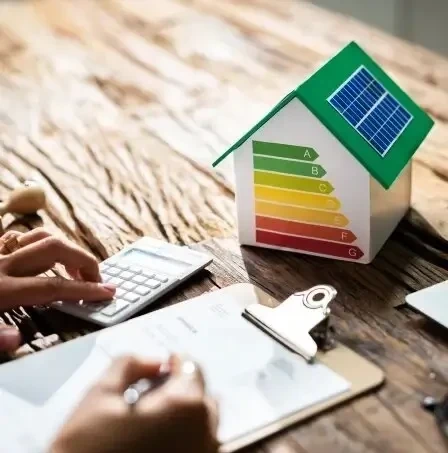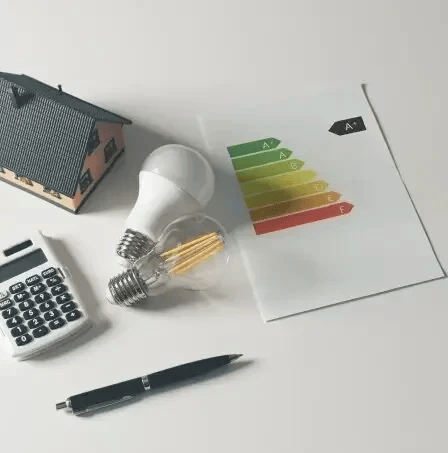The Energy Performance Certificate is issued after an assessor has inspected a building and uses an alphabetic system to indicate the building's energy efficiency. On the certificate, the assessor will indicate areas where the building fails to live up to current energy efficiency standards and recommend ways to improve the building's EPC rating. An A rating indicates the most energy efficient building, an EPC energy rating of C indicates a fairly efficient building, while a G rating indicates a building that is woefully inefficient.
Currently, the average EPC rating for homes in England and Wales is a pedestrian D meaning they have an energy efficiency rating of 55 - 68% of their potential. Since 2020 Minimum Energy Efficiency Standards (MEES) have prohibited landlords from renting out any property with an EPC rating of F or G.
More About the EPC Rating
In England and Wales, every new home or home offered for sale or rent must have a valid, up-to-date Energy Performance Certificate. Landlords or sellers must provide a copy of the Certificate to potential buyers or renters or face stiff penalties for failing to do so.
If a person owns and occupies the same home there is currently no need for an Energy Performance Certificate (that will likely change in the coming years, so stay tuned). If, however, they decide to sell the house they will need to obtain an EPC and present it to prospective buyers.
As we mentioned above rental properties must currently have a valid EPC with a rating of “E” or better and landlords must provide prospective renters with a valid EPC indicating such a rating. A given property’s rating is determined by a formula that measures the amount of energy used per square metre and how many tonnes of CO2 it emits per year.

EPC Energy Rating C: Explained
An EPC energy rating of “C” indicates a home that was built using energy efficient building methods or one that underwent renovation work aimed at increasing its energy efficiency. A “C” rating indicates the home is between 69 and 80% efficient. That’s good considering the average home is between 55 and 68% energy efficient. Although it is still a pretty long way from optimal energy efficiency.
A good EPC rating will make a home or rental property more attractive to potential buyers or renters who know they will not be facing monumental energy bills every month. Real estate industry studies confirm this and go on to indicate that energy efficient homes also attract notably higher sale prices than homes that are not energy efficient. As much as 2 to 8% higher.

Improving Your Home’s EPC Rating
If you want to raise your EPC energy rating to C or better are any number of things you can do. Here are the steps that typically provide the largest energy saving dividends:
Most people are not aware of just how much heat escapes to the outdoors through their old-fashioned windows, but it's a significant amount. If you want to put an end to that exodus and improve your home's EPC rating a good place to start is to install triple-glazed windows.
Heat rises. In homes with poorly insulated lofts the heat rises to the loft and then quickly escapes to the atmosphere. A great way to enhance your home’s EPC rating is to invest in robust loft insulation along with cavity wall insulation for the exterior walls.
Today’s boilers are light years ahead of those from just 20 years ago when it comes to energy efficiency. If you want to enhance your home’s EPC rating consider replacing an old energy-wasting boiler with a new energy-efficient one. You may also qualify for a rebate under the Boiler Upgrade Scheme.
Those planning to sell or rent a property will need to make sure it has a valid Energy Performance Certificate. We can provide that for you in a timely and affordable fashion. Contact the team at EPC today by calling 0203 397 8220 or by completing our online form.
